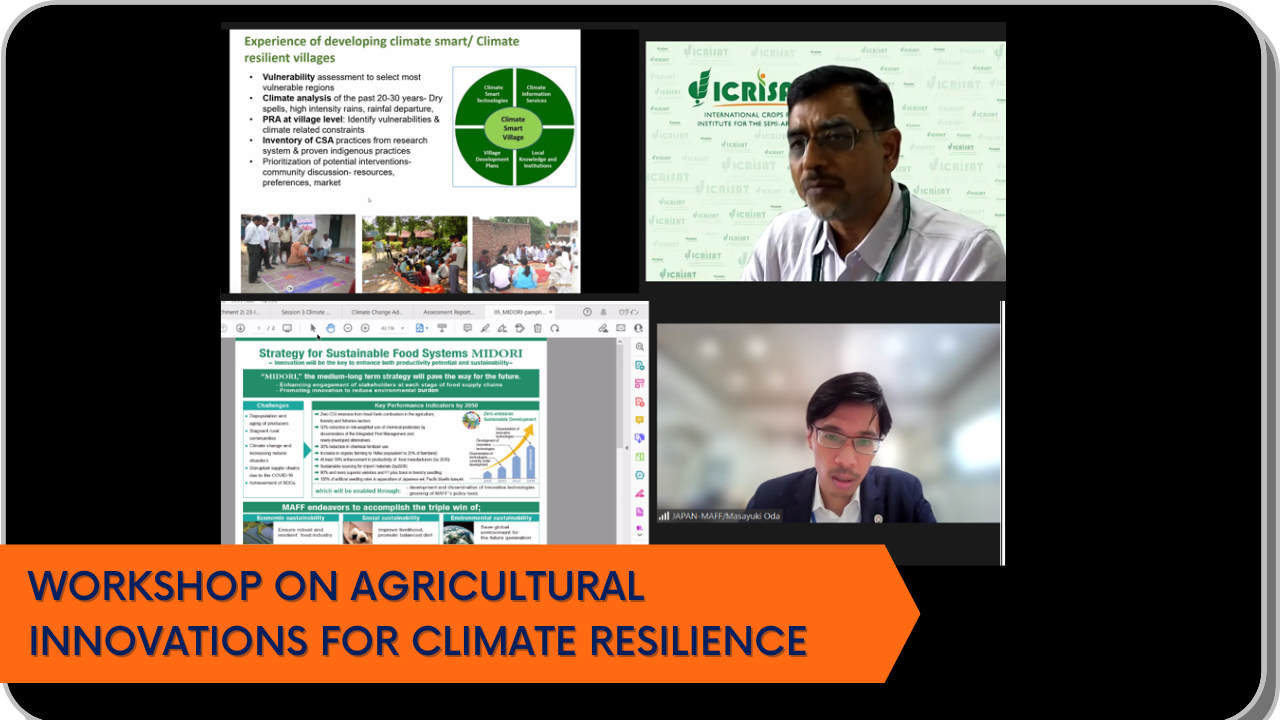
Select Page

The Japan Productivity Center and APO Secretariat conducted a workshop on Agricultural Innovations for Climate Resilience, 12–14 September. It aimed to create awareness of technologies, tools, and models to enhance agricultural productivity, especially under abiotic stresses caused by climate change. The online workshop was attended by 39 participants from 12 APO members, including policymakers, executives of farmers’ and agribusiness associations, academics, and specialists in climate change and sustainable agriculture.
Climate change has significantly impacted global agricultural productivity, causing droughts, heatwaves, higher salinity levels, and flooding. In a study under the collaboration of the Cornell University, University of Maryland, and Stanford University published in Nature Climate Change indicated that climate change had caused a 21% decline in global farming productivity, effectively erasing seven years’ worth of progress made in the past six decades. The workshop served as a platform to gain insights into the latest agricultural innovations and best practices to mitigate those changes. The focus was on innovative approaches in line with the APO Vision 2025 and contributing to meeting the UN SDGs through Green Productivity.
While adapting to climate change and increasing production to support a burgeoning global population, APO members must meet multiple objectives. The workshop covered topics ranging from the global impacts of climate change on agricultural production to innovative tools, techniques, and models boosting crop yields amid environmental threats. Discussions examined policies and regulations aimed at accelerating the adoption of climate-smart agriculture practices. Facilitated by four experts, including two from India and one each from Japan and Vietnam, participants analyzed key success factors from case studies and identified solutions tailored to the unique contexts of APO members.